Conservation International’s star-studded advertising campaign remembers to save the rainforests, but forgets Indigenous Peoples
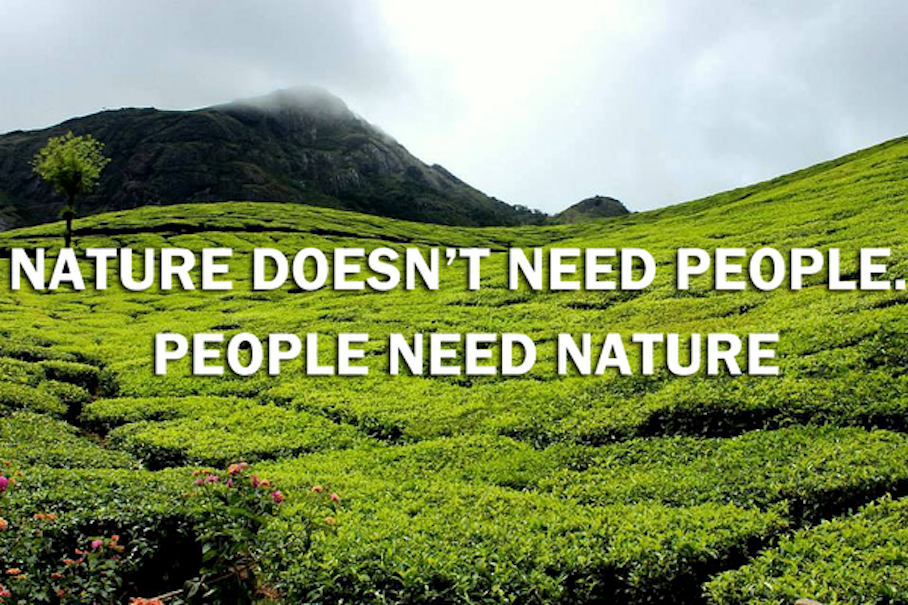
Julia Roberts, Harrison Ford, Kevin Spacey, Edward Norton, Penélope Cruz, Robert Redford, Ian Somerhalder. These are the big names that Conservation International has recruited for its new advertising campaign.
It’s called Nature is Speaking, and the celebrities play the role of nature: Harrison Ford is the Ocean; Edward Norton is the Soil; Penélope Cruz is Water.
“The environmental movement has missed the mark with our impenetrable language,” Peter Seligmann, chairman and CEO of Conservation International, told Fortune magazine.
So Seligman got marketing guru Lee Clow to work on Conservation International’s advertising campaign. Clow was one of the people behind Apple’s 1984 commercial and the “Think Different” slogan.
The fact that Laurene Powell Jobs, Steve Jobs’ widow, is on the board of Conservation International no doubt helped persuade Clow to get involved.
Here’s Kevin Spacey playing The Rainforest:
I am the rainforest. I watched them grow up here. They’ve left. But they always come back. Yes they always come back. For my trees. Their wood. My plants. Their medicines. For my beauty. Their escape.
I’ve always been there for them and I have been more than generous. Sometimes I gave it all to them. Now gone, forever.
But humans, they’re so smart, so smart. Such big brains. And opposable thumbs. They know how to make things. Amazing things.
Now why would they need an old forest like me any more? Jungles? Trees?
Well, they do breathe air. And I make air. Have they thought about that?
Humans. So smart. They’ll figure it out.
Humans making air. That’ll be fun to watch.

The campaign is aimed at convincing us that humans depend on nature. The photography is beautiful. The voices are great. And every time someone uses the hashtag #NatureIsSpeaking on Twitter and other social media, Hewlett-Packard donates US$1 to Conservation International (up to US$1 million).
But there’s a serious problem.
The rainforests in Conservation International’s advertising campaign are beautiful, but they are empty. Conservation International forgot to mention the people who live in the rainforest.
A recent report by World Resources Institute and the Rights and Resources Initiative found that recognising and protecting Indigenous Peoples’ and local communities’ rights to their land and forests are crucial for protecting forests.
The deforestation rate in community-managed forests in the Brazilian Amazon is 11 times lower than in forests outside those areas. More carbon is stored in community forests.
As Rights and Resources Initiative points out,
By arguing that nature doesn’t need people, Conservation International unwittingly discredits the millions of Indigenous Peoples who have acted as effective and responsible stewards of their land for centuries. This kind of thinking has had devastating real-world ramifications, with untold millions of local communities suffering from forced relocation over the past century of “conservation” – a pattern that continues all too often today.
Denmark set to end all new oil and gas exploration
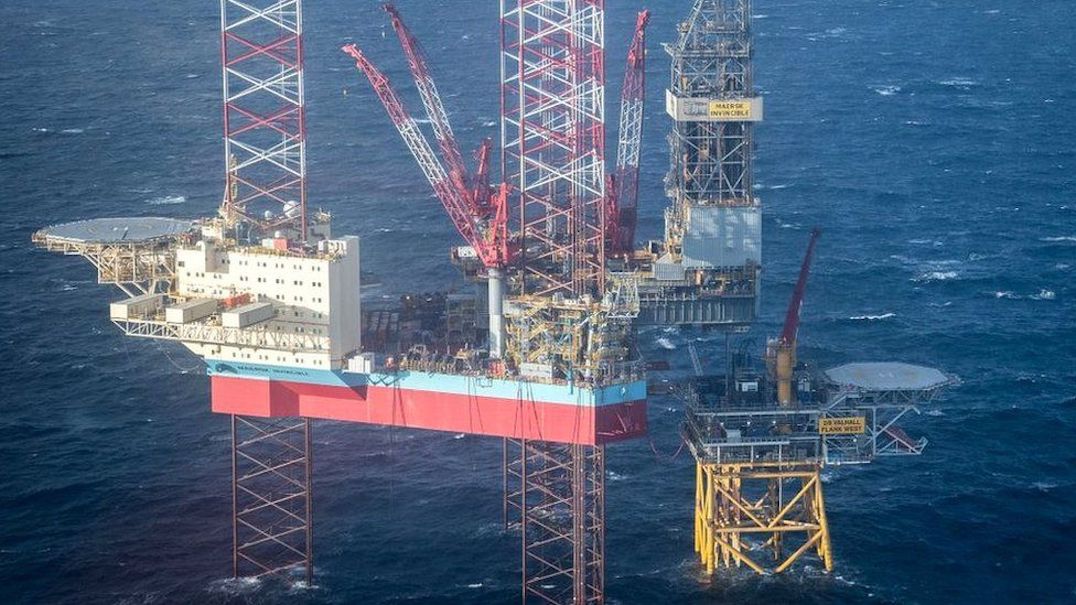
Denmark will end all new oil and gas exploration in the North Sea, as part of a wider plan to stop extracting fossil fuels by 2050.
Its government also agreed to cancel its latest licensing round on Thursday, which gives firms permission to search for and produce oil and gas.
“We are now putting a final end to the fossil era,” said Denmark’s climate minister.
Greenpeace Denmark described the announcement as a “watershed moment”.
However, the country’s latest licensing round was facing uncertainty, after Total of France pulled out in October, leaving only one other applicant.
Denmark is currently the largest oil producer in the European Union, although it produces much less than non-EU members Norway or the UK.
It pumped 103,000 barrels a day in 2019, according to analysis by UK oil giant BP
There are 55 drilling platforms on its territory, across 20 oil and gas fields.
“We’re the European Union’s biggest oil producer and this decision will therefore resonate around the world,” Danish climate minister Dan Jorgensen said on Thursday.
The decision will cost Denmark about 13 billion kroner (£1.1bn), according estimates by the energy ministry, though it said this amount was subject to substantial uncertainty.

A historic milestone
By Adrienne Murray, Denmark
This move marks a historic milestone. No other sizeable oil producer has taken such a step, Dan Jorgensen tells the BBC.
Denmark has been positioning itself as a frontrunner fighting climate change, but its oil production had presented a dilemma.
Since the 1970s, Denmark has earned billions of dollars from its North Sea oil. That’s also helped finance the country’s generous welfare state.
“We want to be climate neutral in 2050. And if we are to have any credibility in that, then this is a necessary decision,” says Mr Jorgensen.
When the current government came to power, Prime Minister Mette Frederiksen called it “the first climate election”.
But recently it has faced criticism for not taking more ambitious steps to reach its climate goal. This latest decision now sends a stronger message.
Economic factors have played a role. Lower oil prices and higher costs have seen interest wane in the latest round of oil bloc tenders.
Even so, about 4,000 jobs depend on the sector – mostly on Denmark’s west coast.
As part of the new plan, Mr Jorgensen says carbon capture and storage technology will be developed in the area, and new job creation will come from the country’s growing off-shore wind sector.

‘Green frontrunner’
Denmark is regarded as having one of the world’s most ambitious climate targets.
It aims to reduce greenhouse gas emissions from 1990 levels by 70% by 2030, as well as reach net zero emissions by 2050 – both targets which have been passed into law.

Helene Hagel, head of climate and environmental policy at Greenpeace Denmark, said that the new announcement meant “the country can assert itself as a green frontrunner and inspire other countries to end our dependence on climate-wrecking fossil fuels.
“This is a huge victory for the climate movement and all the people who have pushed for many years to make it happen.”
Governments around the world have also committed to take further action on climate change as part of a wider plan to meet the goals of the Paris Agreement.
The UK will aim to cut its carbon emissions by at least 68% of what they were in 1990 by the end of 2030, Prime Minister Boris Johnson announced on Friday.
Scientists have said, however, that even if the UK and other nations keep their promises on cutting emissions there was no guarantee the world would avoid serious global warming.
Indigenizing Philanthropy: Shifting Grantmaking Practices from Extractive to Reciprocal

By Galina Angarova and Daisee Francour
The Indigenizing Philanthropy Series is a five-part article series accompanied with a webinar and toolkit to provide a framework in how to transform and Indigenize philanthropy. Co-authored by Cultural Survival staff Galina Angarova (Buryat) and Daisee Francour (Oneida), both authors have unique experiences as Indigenous women who have worked both in philanthropy as program officers for private foundations and as fundraisers for NGOs. Angarova and Francour, Indigenous women from the United States and Russia (Siberia), offer their dynamic expertise and shed an important light on how philanthropy can take a serious, introspective look at its colonial roots and take authentic actions to remedy its future in a way that is aligned with natural law and responsible ways of being and knowing.
Check out these other articles in the Indigenizing Philanthropy Series: (1) Indigenizing Philanthropy and (2) Reimagining Philanthropy: Towards Relationships, Trust, Abundance, and Radical Love
Life is not a linear process, but rather an everlasting loop of birth, life, death, and rebirth. The circle of life shows up in the physical and metaphysical world, in our soils, on the highest mountain tops and in the deepest oceans. As Indigenous Peoples, we know this to be true because it is reflected in our creation stories, songs, prayers and cosmovisions. We see the circle of life for philanthropy nearing the end and putting to rest old practices that no longer serve the collective. Philanthropy’s rebirth is coming, and it is time for new practices of reciprocity, responsibility, respect and relationships under Indigenous leadership will lead the way. While there are some great movers and shakers that are working to address the injustices in the field, philanthropy as a whole must take a bold and honest look at itself, face its ugly truths and colonial roots, and follow the leadership of Indigenous Peoples, and specifically Indigenous women to move forward in a more equitable and balanced way. This third article in Cultural Survival’s Indigenizing Philanthropy Series, examines how philanthropy can shift its charitable giving and grantmaking practices from extractive to reciprocal ways of being and knowing.
For many, philanthropy in its modern form, has become a major industry and a tax haven for the rich — allowing the wealthy to further protect and hoard their resources. During World War I, the United States amended the constitution and its federal tax code to allow for charitable, tax deducting contributions to finance the war. Businesses took advantage of these changes postwar to protect their assets and profits from federal taxes. Moreover, most mainstream philanthropy today is tied to the stock market, and when the economy plummets, so does planned annual giving. But what needs to be understood is that philanthropy has deeper roots than how it is presented today. Philanthropy — the act of giving out of abundance to promote the welfare and quality of life for others — is a practice that Indigenous Peoples have carried out since time immemorial. While the U.S. and other global economies are based on capitalism, extraction, exploitation, and appropriation, Indigenous economies are based on gifting and reciprocity, which in turn maintains balance between Peoples, across ecosystems and in the natural world at large. Philanthropy has a unique position and responsibility right now to respond to and align itself with transformational, societal shifts that are taking place across the globe and rightfully align with social, racial, economic, and climate justice movements.
Capitalism and colonization shows up in philanthropy in more ways that we would like to admit. From top-down, bureaucratic and hierarchical decision-making that lacks true perspective and experience in leadership that is reflected in the communities served, to annual giving that is determined in advance and aligned with the money market, to operating in silos and understanding social issues as linear… the list goes on and on. Colonization and capitalism remain the founding pillars of modern philanthropy and are reinforced by the wealthy individuals, families, and corporations that develop and manage philanthropic institutions like foundations. Recognizing that all colonial currencies and the abundance of wealth that exists in this world today are tied to capitalism with direct historical roots to the theft of Indigenous lands, displacement of Indigenous Peoples and forced, free labor of Black people. Even newer tech companies that date only a few decades back or less, too, can trace the money that seeded their work to the origin of stolen land and forced, free labor. Philanthropy needs to acknowledge this painful history and let its origin of wealth guide it towards transformation.
In response to the various social and racial justice movements across the globe, philanthropy and other fields have coined the term “decolonize” into a hot buzzword, making it trendy and desirable. But what does decolonize really mean?
“Decolonization is the process of deconstructing colonial ideologies of the superiority and privilege of Western thought and approaches. On the one hand, decolonization involves dismantling structures that perpetuate the status quo and addressing unbalanced power dynamics” (Cull et al, 2018).
What should be understood is that decolonizing and Indigenizing a system are not synonymous, but are both important, complementary processes. Decolonizing focuses on unwiring colonial, extractive, and exploitative attributes that interfere with equity, justice, and balance in relationships and our environments. Indigenizing replaces, or rather returns us to our original ways of being and knowing, which supports reciprocal relationships between peoples and place. This unwiring (decolonization) and re-wiring (Indigenization) is a process that is reflected in our neuropaths in the brain and the transition from one to the next takes time, practice and patience to achieve this transformation.
So how does philanthropy move toward transformation? To answer that, philanthropy must identify how colonialism shows up in the field, its institutions and practices. First, philanthropy must normalize introspective and honest conversations about its colonial roots and extractive practices, and boldly acknowledge and denounce the harm it has caused in BIPOC communities. These actions are not simply a one-time task or a checked box, but it is an ongoing act of recognition and admission that builds better practices and eventually shifts organization culture, practices, and outcomes. Moreover, to build better practices and shift organizational culture, there must also be a shift in values, which serves as the north star and guide for how philanthropic institutions fulfills its mission. Developed by International Funders for Indigenous Peoples, foundations should consider adopting the four R’s of Indigenous Philanthropy: Respect, Reciprocity, Responsibility and Relationships. To normalize these values and put them into practice, other actions need to accompany this shift.
Transformative Leadership, Balanced Decision-Making, and Perpetual Learning
As we know, there is a huge disconnect between those who make decisions on funding and those who receive funding. Generally, those in decision-making power have comfortable salaries and their livelihood is mostly unthreatened by the decisions they make. However, for those who are receiving funding, oftentimes their livelihoods is in the hands of funders themselves — job security, income, resources to do the work for community organizations and organizers are often determined by foundations, and largely by the handful of individuals who hold most of the decision making power in the organization. Very few decision-making holders represent and reflect the communities they serve. To work towards transformation, foundations must exponentially increase BIPOC, and specifically Indigenous representation and leadership across staff, senior management, in their Board, and as consultants and advisors. For example, this means non-BIPOC staff, senior management, and Board members who have held long tenure at the organization consider re-defining their relationship to create space for new leadership and ideas. This shift doesn’t mean that their time and contributions weren’t honorable or important, but rather these actions are a catalytic act to enable the organization to transition and move towards transformation. This is where individuals themselves can support the rebirth and renewal of philanthropy directly in their organizations.
Furthermore, the process of decision making and organizational governance must also shift from vertical to horizontal, and practice equity amongst staff and between the Board and staff too. A top down approach to decision making reinforces colonial and extractive organizational culture, further widening the gap between those on the frontlines receiving funding and those determining not only their futures, but in large part, the movement itself. To bridge this gap, decision-making itself should be held with Indigenous knowledge holders and community leaders, and engage the communities served throughout the decision-making process.
In addition to shifting decision-making and the diversity of staff and Board to be more equitable and representative of the communities served, foundations must also prioritize learning as a perpetual act. While on paper, many foundations claim to always be learning and attempt to reflect this in their grantmaking through the questions they ask grantees and the data they gather, yet this data collection has proven to be very harmful to many BIPOC organizations and communities. Data collection and the grantmaking process itself should be designed in collaboration and consultation with the communities served, and each question asked should not only directly contribute to the decision-making process, but mutually serve all parties. Data collection and learning should expand beyond digital grant applications and reports, to include other forms of information sharing. Self-determination should be honored and upheld in grant applications and reporting, as grantees should determine what they want to share about their work, visions and strategies to fulfill their mission. Oftentimes, foundations ask questions and collect data, and the information that sits in a database goes unused or underutilized; foundations become hoarders of data and stays housed internally. Moreover, there should be an increase in external information sharing and learning. This includes more peer to peer learning between funders and grantees, and amongst funders. Despite funders usually operating in silos, there needs to be more intentional sharing and cross-pollination, so that those learnings too, aren’t hoarded. Decolonizing learning includes decolonizing due diligence processes too, and so, the cross pollination of mutual learning should be equally shared across the organization. This includes bridging the gap between executive, program and grants management teams, so that all staff understand the objectives and shared goals of learning, and all staff can contribute. Learning requires humility, and we all experience learning curves in the process. But when we bridge communication and relationships, we are able to better understand and support each other.
Reciprocal Relationships
For Indigenous Peoples, we recognize that all things are related. Each living thing, human and non-human are interconnected and interdependent in the web of life. Our health and well-being are intrinsically tied to one another, to the land and our environments. Our original instructions outline our roles and responsibilities, to the land and each other. Our blood memories remind us to be in better relationship with our environments, and even when we stray from that balance, our ancestral memories pull us back into our reciprocal relationships. However, colonization has conditioned us to think and act as individuals and independently without consequence or accountability, further disconnecting us from each other and the natural world, and our inherent responsibilities to taking care of Mother Earth and all living things. To restore the harm colonization has caused, we must restore, redefine and transform our relationships, and this applies to philanthropy too.
The unwritten rules and protocol of a relationship is defined at the beginning, and is embedded in the language exchanged between the parties, and for funders and grantees, this usually starts before contact. Grantseekers will review a funder’s website and quickly adjust their communication strategy because of the language used by funders to convey how they work, their understanding of the issues along with their strategies (often filled with restrictions) to fulfil their mission. When mission alignment is established (and sometimes stretched) between funders and grantseekers, the language used by funders creates a power imbalance, unreasonable expectations and violated self-determination.
Philanthropy must remember that life is all about relationships, and that includes their ability to fulfill their mission. Nothing happens outside of relationships, whether it’s between people or between them and their land and ancestors, all the magic happens when we truly start relating to each other with an open heart and trust. Collectively, we need to (re)learn the art of being in relationship to one another. How do we get to a place of “we”, and not just “I”? How do we go beyond individual gain and success to our collective prosperity? Community and the collective have always been some of the most important values for Indigenous Peoples. We as Indigenous Peoples have always understood that the health of an individual depends on the health of the collective, and this understanding should become foundational for transformative philanthropy.
As philanthropy strives to address power imbalances in their relationships with their grantees, foundations need to treat their grantees as partners. Their partners not only help the foundation fulfill their mission, but deepens their understanding in how to fulfill their mission through a mutual learning journey. Working singularly is a part of the culture in the western world, and reinforces colonization in philanthropy. But to work in true partnership means addressing accessibility between the funder and grantee partner. Restoring relationships requires strengthening access between each other, and funders are generally inaccessible to grantees and grantseekers, often by design, further widening the imbalance in relationships, increasing power dynamics and reinforcing a transactional relationship. What many funders fail to understand is that their grantee partners and the work they do is a primary way funders fulfill their mission, and that funders too, are dependent on their grantees to fulfill their mission. For funders who use donor-advised funds (DAFs), direct access to the funder is nearly impossible and is done so by design, further reinforcing the extractive and hoarded control and protection of resources. Funders must take a serious look at how their access, or rather inaccess is contributing to the harm of BIPOC organizations, and unnecessary labor required to meet the funders demands. Inaccess also takes form in certain requirements outlined in eligibility for grantseekers. Oftentimes, U.S. based foundations require grantseekers in the U.S. to obtain a 501(c)(3) charitable tax status, or a foreign equivalent for grantseekers outside the United States. Few funders allow grantseekers to be fiscally sponsored, or even be an unincorporated organization. This requirement serves as a major barrier for small, grassroots organizations and is actually a violation of their self-determination. Philanthropy needs to regularly assess and ask themselves if and how they are infringing on self-determination of their partners and the movements they support, and understand that the requirements they set are reinforcing colonization.
Shifting from Giving to Gifting
For Indigenous Peoples, our economies are based on gifting and reciprocity. We do not take more than we need and we always give a gift in return, sometimes medicine, song, prayers, and more. Because modern philanthropy is interwoven into capitalism, extractive transactions have disrupted the true purpose of philanthropy — the act of giving out of abundance to promote the welfare and quality of life for others. For example, philanthropy may use the term “gift”, oftentimes synonymous with “grant”, yet requires reporting, and rigorous reporting at that, to prove the money was spent accordingly. So, is this really a gift then? A gift economy means living in a state of abundance and that sharing excess, ensures balance in the natural world and equity amongst people. But how do we bring abundance to a field that is inherently scarce? This requires a collective effort across the field to shift from scarcity to abundance, and be guided by Indigenous Peoples, the originators of the gifting economy. This means getting rid of applications and rigorous due diligence processes that require a grantee to prove themselves over and over again, all while their legitimacy and leadership is continuously questioned even after the grant is awarded, evident in the reporting. Instead, philanthropy can continue to move toward building long-lasting and trusting relationships so extensive applications and rigorous due diligence processes are no longer necessary. Eradicating these extractive processes and replacing them with the opportunity to contribute to incredible things in our world while simultaneously fulfilling their mission is deeply honorable. Yet, colonization has conditioned us to compete with others and to be superior to our peers, our relatives, our equals. We need to remember that philanthropy is about the people, and we are more than a portfolio.
Philanthropy can move towards reciprocity and away from extractive practices through transformational leadership, balanced decision-making, perpetual learning, reciprocal relationships and operating from a place of abundance. But this is only the beginning, and we, as Indigenous women, leaders, and experts in the field, invite you to join us in your journey of healing, decolonization, intentionality and transformation. Stay tuned for the next article, “Indigenizing Philanthropy: Rematriating the Distribution of Wealth” to be released Tuesday, December 8, 2020. Follow along for additional resources in the Indigenizing Philanthropy Series brought to you by Cultural Survival.
On patrol along its Arctic coast, Norway’s relation with Russia is challenged between deterrence and reassurance

VARANGER FJORD – Top speed is classified but make no mistake, the KNM Gnist is the fastest and most maneuverable warship that ever has patrolled these border waters up north. For Norway, however, navigating its security policy as times get rough is becoming more and more difficult.
“There’s not many like us that can master conditions with icing, darkness, severe weather, strong winds,” says Captain Rune Sønstebø.
His crew makes ready for departure with the camouflage-colored catamaran. KNM Gnist is the newest of six fast patrol missile boats of the Skjold (‘shield’) class in the Norwegian Navy. It is small in size but carries a heavy weapon load.
Captain Sønstebø explains the ship’s covert operational capability in littoral warfare. “The coastal topography of northern Norway is unlike most other nations. The archipelagoes at Helgeland, as an example, we are unique in combating there.”
Seeing the Skjold class ships along the eastern coast of Finnmark region is nowadays not uncommon. From the Varanger fjord, Russia’s most powerful nuclear deterrence assets are just a few tens of nautical miles away. Protecting the ballistic missile submarines’ ability to launch in case of a global security threat is key to understanding why the Russian Northern Fleet has escalated its exercises off the coast of northern Norway in recent years.
With advanced weapons technologies, like the new long-range precision cruise missiles, modern multipurpose submarines and aircraft, Russia plans for denial operations in the maritime spaces of the North Atlantic. Maybe as far south as the North Sea. In case of conflict. Most of Norway falls within such a buffer.
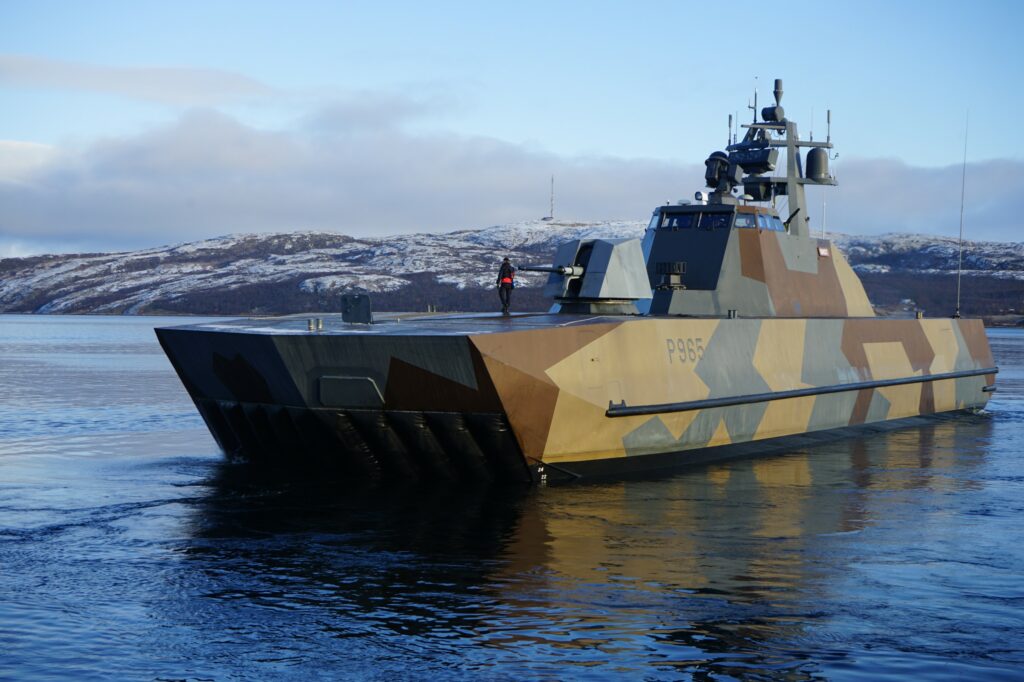
“We are sending a message by our presence at the Norwegian coast,” Rune Sønstebø says. He adds: “Finmark, like the rest of the Norwegian coast, is of utmost importance. To exercise, understanding the normalities and to show presence here are a part of the normal situation and an important area to know and master.”
Speaking with The Barents Observer about NATO’s elevated northern focus, Defence Minister Frank-Bakke-Jensen states: “Norway is NATO in the North.”
The minister is often traveling the faraway Arctic regions of the country. “We maintain situational awareness with continuous and credible presence.”
Bakke-Jensen is from Båtsfjord, a small fishing town on the coast to the Barents Sea where people and politicians for generations have maintained contact with their Russian neighbors in the east. Even during the years of the last Cold War. Keep going with cross-border cooperation benefiting both countries are high up on the agenda, not only for the locals but also for Oslo and Moscow. Fishery regulations, environmental protection, search- and rescue are some areas given priority also in times of geopolitical turbulence.
Norway’s Navy is not big, but few countries have crews better drilled on Arctic navigation. The two officers in the seats on the high-tech bridge on KNM Gnist give more power to the engines as we are sailing faster and faster out the fjord.
There are air cushion between the two hulls of the catamaran, literally lifting the ship on the water surface. Asked about the top speed, the crew members are unforthcoming. But smiles. Searching the internet you can find hints at above 60 knots.
Sønstebø translates the speed into a geographical understanding: “We can eat breakfast in Bergen and dinner in Tromsø.”
We can eat breakfast in Bergen and dinner in Tromsø.
The ship has a crew of 21. On the rear deck are two launchers armed with the NSM (Norwegian strike missile), which has a range of 185 kilometers, according to Wikipedia. On the front deck is the gun, firing shells to a range of 16 kilometers.
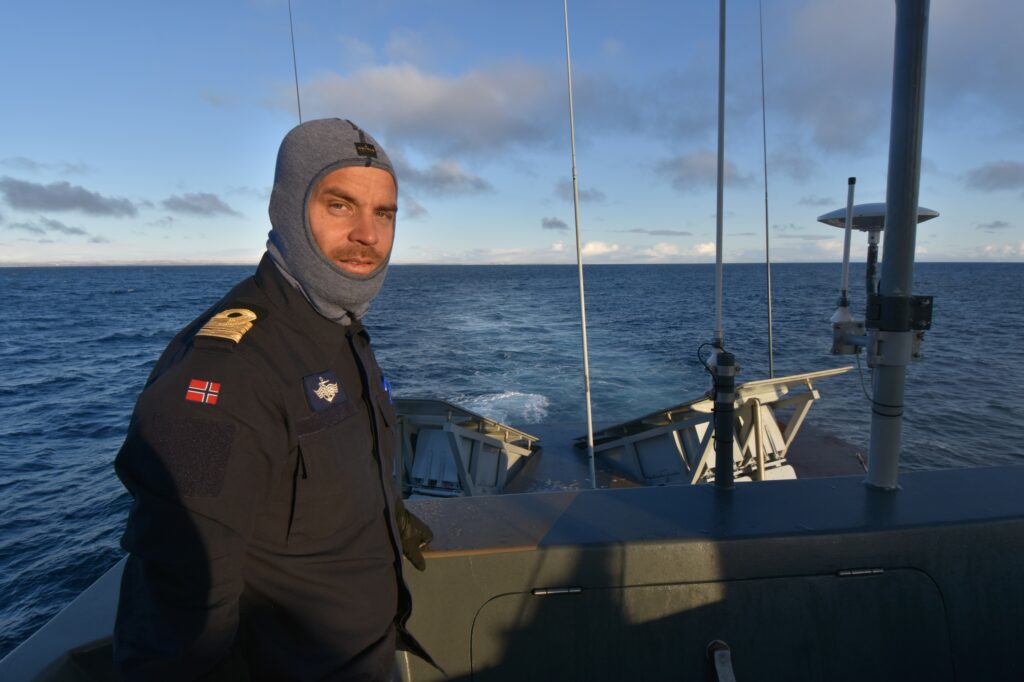
With unique maneuverability, the KNM Gnist can engage hostile forces from close distance anywhere along the coast. Reduced signatures, or stealth, makes the vessel less visible on enemy radar. The shallow draught allows for sailings in very shallow waters, utilizing it for own advance, where other navy ships can’t come.
On a day with clear skies, Russia’s Fishermen Peninsula is an easy eye-catcher from the Varanger fjord. The Peninsula forms a natural barrier from the west, protecting the Northern Fleet’s submarine bases of Zapadnaya Litsa, Vidyayevo, Gadzhiyevo, Olenya Guba, and Polyarny.
NATO steps up
Russia’s President, Vladimir Putin, and his commanders like Chief of Staff of the Armed forces Valery Gerasimov and Defence Minister Sergey Shoigu, have increasingly stressed the importance of the strategic nuclear forces. “I want to emphasize that, despite the constantly changing nature of military threats, the nuclear triad remains the primary, key guarantee of Russia’s military security,” Putin said in a November meeting with senior Defense Ministry officials.
With well-known rhetorics aimed at his domestic audience, Putin continued: “NATO is expanding its military presence in Europe close to the Russian border, and has failed to respond to our proposal to scale down military activity during the epidemic. Moreover, NATO countries’ air forces and navies have even stepped up their operations.”
Seen from up north, Putin is partly right when talking about NATO. 2020 became the year when the U.S. Navy sailed into the Barents Sea with surface warships for the first time since the mid-1980s. On several occasions. First together with the British navy. On a later voyage, also a Norwegian frigate joined.
Prior to Moscow’s annexation of Crimea in 2014, Norwegian frigates made several friendly port calls to Severomorsk, the main naval base of the Northern Fleet. The maneuver in September with KNM Thor Heyerdahl, however, was the first-time such warship sailed east of the Varanger fjord on a mission not in cooperation with the Russian Navy.
Bridge over troubled waters
A change of tactics by a country that previously has intended not to openly provoke the Russian bear. Or recognition of a dramatically changed security picture. Views are mixed.
“It is definitively not a good idea unless Norwegian authorities only want to keep a strong relationship with one of the powers, the United States,” says Lieutenant Colonel Tormod Heier when asked about Norway’s sailing with NATO ships east of Varanger. Heier is professor at the Norwegian Defense College. He argues that Norway can’t keep a relationship with only the United States, but is forced to seek good relations with Russia as well.
Norway can’t keep a relationship with only the United States, but is forces to seek good relations with Russia as well.
“This is due to Norway’s unique geopolitical position, only 40 to 120 kilometers from some of Russia’s most valuable nuclear forces. Norwegian authorities, therefore, need to balance between almost incompatible great power expectations: to be a good ally in the west while also being a good neighbor in the east,” professor Heier says.
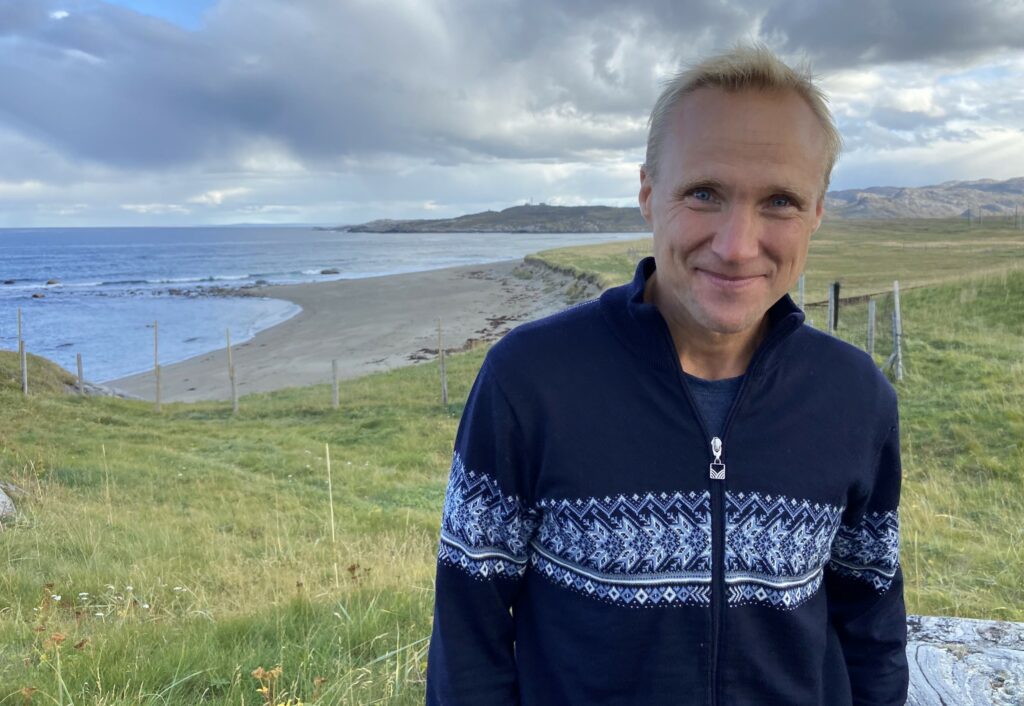
Moscow is well aware of Norway’s security policy of balancing between deterrence and reassurance.
Speaking friendship and geopolitics at a lunch hosted by Norway’s King Harald V in October 2019, the Russian Foreign Minister Sergey Lavrov praised the role of Norway as a peace negotiator around the world. “There is nothing that hinders Norway to take a lead in building bridge between Russia and NATO,” Lavrov said.
The lunch took place in Kirkenes in connection with the celebration of the 75th anniversary of the liberation of northeastern Norway from Nazi-German occupation by Soviet troops in 1944.
Wordings by the Russian Foreign Ministry are no longer as generous as Lavrov presented a year ago. In one of her weekly press conferences, spokesperson Maria Zakharova in late November lashed out against Oslo and said Norway can no longer continue its “two-track approach”, where it, on the one hand, seeks cooperation with Russia in certain fields and on the other has a “destructive course” on the containment of Russia. Zakharova’s talk came in response to a question about the presence of US submarines in northern Norway. She said the country is becoming “NATO’s foothold in the Arctic.”
Propaganda or real concerns
Tormod Heier says it is hard to know what is propaganda and what is a real Russian security concern. “It is important to note, however, that in all propaganda is a small core of truth.” He recommends Norwegian authorities to be cautious about shrugging off Russian concerns.
“Norwegian security interests rests upon a safe and secure Russia; that is our unique destiny,” Heier says and points to the high north where Norwegian and Russian security interests are “intimately entwined.”
“The dilemma is this,” Heier says, “how can Norway gain as much US security guarantiee as possible without provoking Russian counter-reactions? I think a wiser policy would be to increase US naval sustainability from bases further south in Norway. Otherwise, Norwegian territory, infrastructure and cities, such as Tromsø, may easily climb higher up on Russia’s target-list each time a minor situation becomes tense and escalate.”
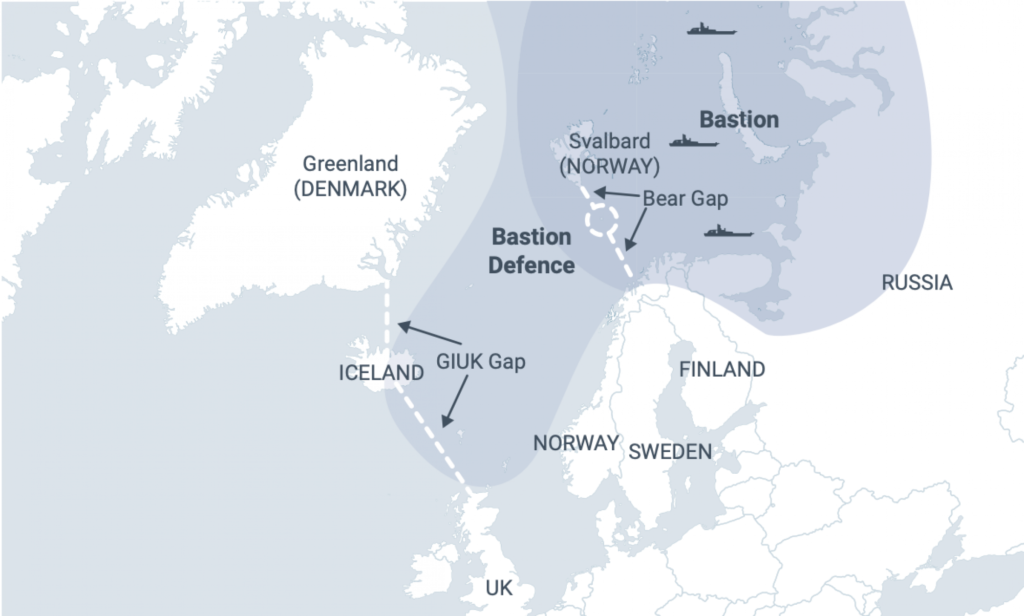
U.S navy submarines have for decades patrolled the waters of the Norwegian- and Barents Sea as part of the long-established cat-and-mouse game of submarine hunting. For NATO, it is of vital importance to keep track of Russia’s silent multi-purpose subs sailing out to the North-Atlantic with new long-range cruise missiles with high precision. To spend as much time as possible up north, the U.S. submarines frequently change crew members and get supplies in fjords outside Tromsø. Sailing south to any of the naval bases Haakonsvern in Bergen or Faslane in Scotland for the same job would add several days away from the sub’s main duty, following the Russians down deep up north.
The Barents Observer has previously reported about the increased presence of American submarines in Norwegian waters, in 2018 said to be inshore 3 to 4 times monthly. Also, to help keep track of the Russian subs, U.S. Navy P8A Poseidon Maritime surveillance aircraft are frequently, including this October and November, deployed to Andøya military airfield inside the Arctic Circle in Norway.
The over-land distance from Tromsø to the Russian border is more than 450 kilometers, but for the Northern Fleet based on the Kola Peninsula, the Norwegian Sea has increasingly been part of the playground when exercising the Bastion Defense concept. Powerful American assets would seriously challenge Russia’s capabilities to conduct sea-denial operations in the area in case of conflict.
Julie Wilhelmsen with the Norwegian Institute of International Affairs (NUPI) is an expert on Russian foreign and security policies. She says the intensity in Russian statements on Norwegian defense policy has escalated in recent years. “In particular since the 2018 Trident Juncture exercise.” Participating in the exercise was USS Harry S. Truman, the first time since the 1980ies an American nuclear-powered aircraft carrier sailed inside the Arctic Circle near the Lofoten archipelago.
“Russian criticism is raised with every new adjustment made to Norwegian defense policies aimed at strengthening allied presence in the north,” Wilhelmsen says. She sees Zakharova’s statements on U.S. subs in Tromsø as part of this pattern.
Russian criticism is raised with every new adjustment made to Norwegian defense policies.
“While Norway contends that these are small changes and that the Norwegian policy of balance between deterrence and reassurance are unchanged, Russia insists that the changes are threatening and in breach with former policies,” Julie Wilhelmsen explains.
“Russian rhetoric on Norway is part of a broader pattern found in general foreign policy discourse in recent years focusing aggressively on increasing US military installations and presence closer to Russia’s borders anywhere, in Georgia to the south or in the Far East,” she says.

Cold Response
A new large-scale exercise is planned during winter months of 2022 in northern Norway.
Cold Response 22 is a Norwegian hosted exercise where allies and partners are invited to attend, says Brigadier Eystein Kvarving, spokesperson for the Chief of Defense. “It is a defensive exercise, and the aim is to train reinforcement of an allied/partner under challenging climatic conditions. Cold Response 22 will have more emphasis on the sea and air domains than Trident Juncture 18, which had a greater footprint on land,” Kvarving says.
He expects approximately 40,000 personnel from around 10 nations to attend. “Norway have already notified all member states of the Organization for Security and Cooperation in Europe of exercise Cold Response 22. Norway will, in accordance with the Vienna Document and to be open and transparent, invite all 56 signatory states to observe the exercise,” Eystein Kvarving tells.
Russia is one of the signatory states in OSCE.
Nuclear-bombers
In the skies above Scandinavia and outside Norway’s territorial borders, U.S. long-range nuclear-capable bombers have in the course of the last two years become frequent flyers. Often in sorties where Norwegian or Swedish fighter jets participate. Russian long-range nuclear bombers, like the Tu-160 and Tu-95, resumed patrols outside Norwegian and European air space in 2007.
Defense Minister Bakke-Jensen says increased NATO operations in the north are not a result of Norway’s own limited military forces after years of disarmament.
“We have asked NATO to focus much more on the north after a period when NATO’s focus has been in Afghanistan and other non-Western areas. NATO is back in home waters,” Bakke-Jensen says. The minister tells about the new command structure in Norfolk. “The U.S. 6th fleet sails more up north, and we are exercising more with our allies, that be Americans, British, Dutch or Germans.”
Political decision
Frank Bakke-Jensen makes clear it was a political decision to sail a frigate to the waters outside the Russian naval bases on the Kola Peninsula together with U.K. and U.S. navy ships in September this year.
“The decision whether to take part or not and how to balance our relations with allies and to our neighbor in the east is a political question. It was a political decision to participate,” the Defense Minister says.
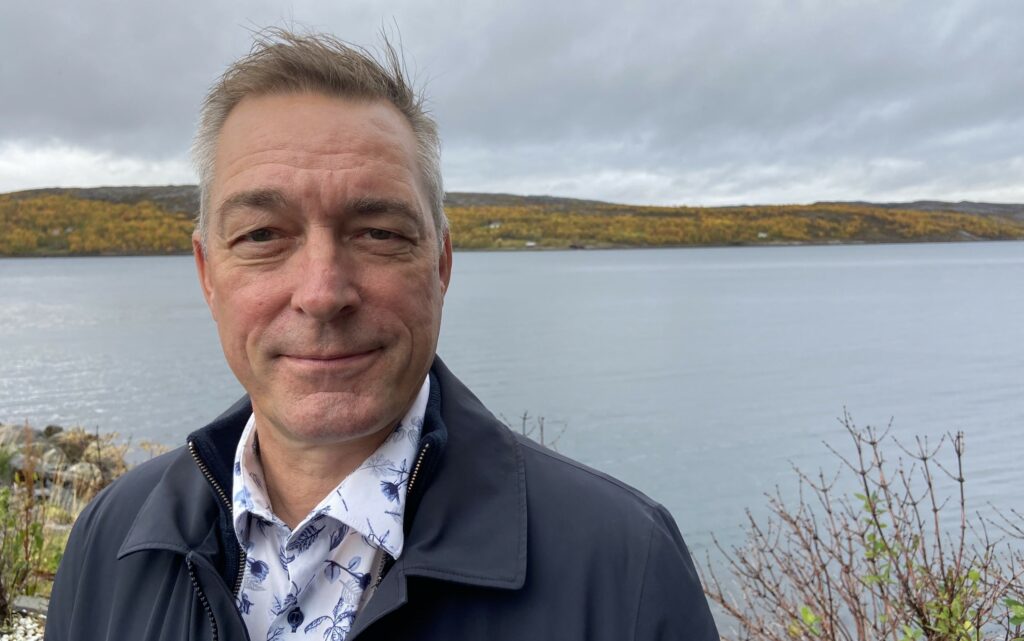
He underlines that for Norway, and NATO allies, being transparent about its military activities is important and should help to build better relations with Russia.
Lack of transparency of Russian military activities in the north, from announcing exercises to the size of troops participating, is a major reason for concern in the west. Like in August 2019 when the movement of large naval forces from the announced Baltic Sea exercise Ocean Shield to the waters outside northern Norway came as a big surprise to the Norwegians. The objective of the exercise, as it turned out, was to block NATO’s access not only to the Baltic Sea but also to the North Sea and the Norwegian Sea. Such exercises are more sophisticated nowadays than previous Russian military drills and involve land forces, like the new Arctic brigade, air and naval forces in comprehensive joint operations. Less predictable military maneuvers, and hybrid-warfare strategies, cause headache to both Norwegian and NATO planners.
To build a military strategy based on uncertainty, complexity and rapid changes is somewhat difficult.
Professor Heier recommends a dual policy with continued deterrence within a NATO-framework and enhanced bilateral reassurance towards Russia.
“The deterrence dimension should emphasize allied presence in Norwegian areas, but further south in order to signal that Norway wants to give Russia’s Northern Fleet a longer strategic warning-time. The reassurance component should emphasize a more intensified effort to stir working-level dialogue and cooperation. This is particularly so along less ‘securitized’ policy-areas, such as environment, trade, fishery and Arctic research,” Tormod Heier says.
Civilian cooperation
In its new Arctic Policy white paper presented the last week of November, the Norwegian government outlines the dramatic shift in regional security. Norway’s relationship with the powerful eastern neighbor is completely altered, as “Russian build-up of forces and military modernization could directly challenge Norwegian and allied countries’ security, the paper reads.
At the same time, the strategy highlights civilian cooperation benefiting both countries. Norway and Russia continue to cooperate on issues such as fisheries, nuclear security and the environment, as well as in multilateral arenas like the Arctic Council and the Barents Cooperation.
Julie Wilhelmsen with NUPI stresses the importance of continued collaboration and contact with Russia on these practical issues as well as on the multilateral arenas of the Arctic and Barents region. Achieving reassurance can also be done indirectly by soft-security measures, she says.
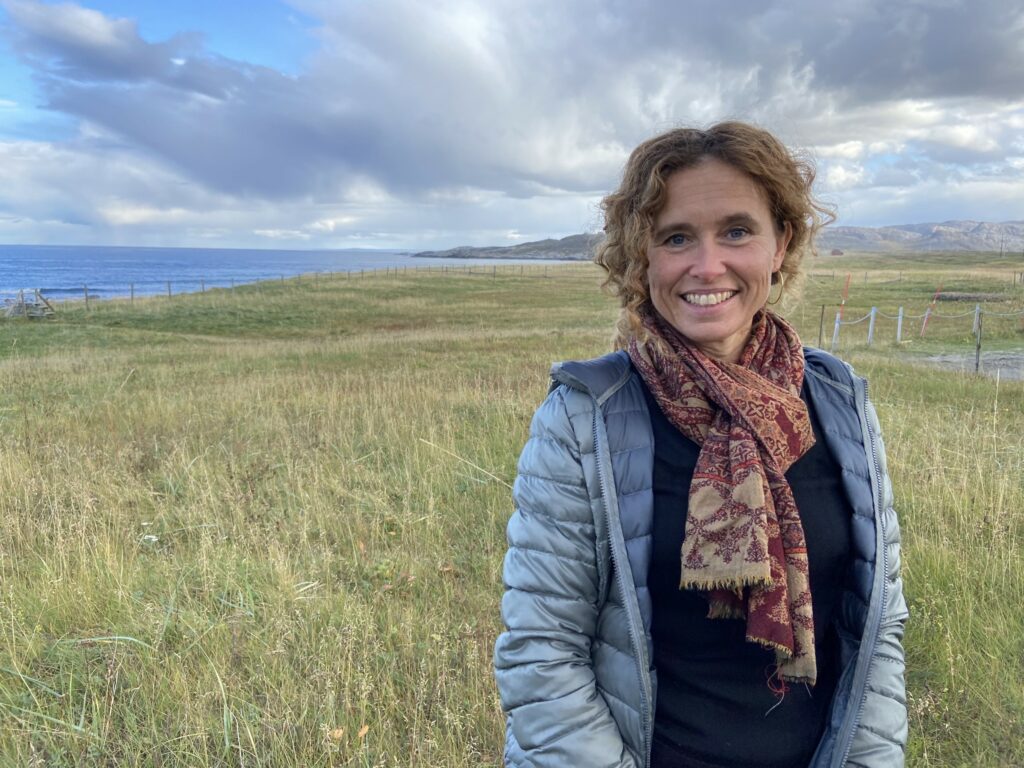
“The government, in particular the Foreign Ministry, has been carefully attending to this aspect of relations with Russian in recent years as far as I can see. However, today the great-power rivalry and the escalating security dynamics ‘above’ Norway as a small state in between Russia and the USA seem to limit the effect of bi-lateral cooperation as a means of building confidence and reassurance,” Wilhelmsen says.
She recommends more regular diplomatic contact as a means of exchanging frank views, possibly also restart military-to-military contacts that were broken off after Moscow’s annexation of Crimea in 2014.
Military buildup
Meanwhile, Russian military buildup on the Kola Peninsula and in the Arctic continues in new and dramatic ways. Current constructions of nuclear-powered submarines have never been higher since the Cold War. New ballistic missile subs of the Borey class and multipurpose subs of the Yasen class are armed with weapons almost impossible to intercept by missile shields. New subs for special underwater operations are in pipe, and testings of the Poseidon torpedo-style nuclear-powered drone are underway. A nuclear-powered cruise missile, the Burevestnik, has already caused major concerns as a recovery accident in the White Sea last year showed the potential for spreading radiation over populated areas.
Major infrastructure new-buildings are underway at the naval bases of the Northern Fleet, and more than 50 reinforced large weapons bunkers are under construction in Okolnaya Bay and in Gadzhiyevo.
Hypersonic cruise missiles that could take out targets in most of Scandinavia within minutes are under testing from both surface warships and aircraft based near Murmansk.
Warning time for a potential limited or major conflict has shortened.
Arms treaties
Unlike during the 11th hour of the last Cold War, all this happens as arms control agreements are faltering and deteriorating.
- The United States withdrew from the 1972 Anti-Ballistic Missile (ABM) Treaty in 2002.
- Russia withdrew from the 1992 Treaty on Conventional Armed Forces in Europe (CFE) in 2015.
- The United States suspended the 1988 Intermediate-Range Nuclear Forces Treaty (INF) in February 2019, and Russia did so in response the following day.
- The United States withdrew from the 2002 Open Skies Treaty on November 22, 2020, while the 33 other party states, including Norway and Russia, continue.
The last treaty now in jeopardy is the most important of them all: The 2010 New Strategic Arms Reduction Treaty (New START) which limits the number of deployed missiles and bombers to 700 with a maximum of 1,550 deployed nuclear warheads on each side, in Russia and in the United States. The treaty expires on February 5, 2021, unless the two countries’ presidents agree otherwise.
If Russia and the United States fail to agree, there will no longer be any arms agreements limiting the numbers of nuclear weapons deployed on the Kola Peninsula or at other locations. Also, the current regime for joint inspections, verifying, transparency and trust-building will come to an end.
At the meeting with his top military brass this November, President Putin made clear: “Considering the military and political risks in today’s world, we will further upgrade our strategic nuclear forces and consistently strengthen all their components.”

Starting with Hiring: How to Welcome Native Leaders to the Philanthropic Sector
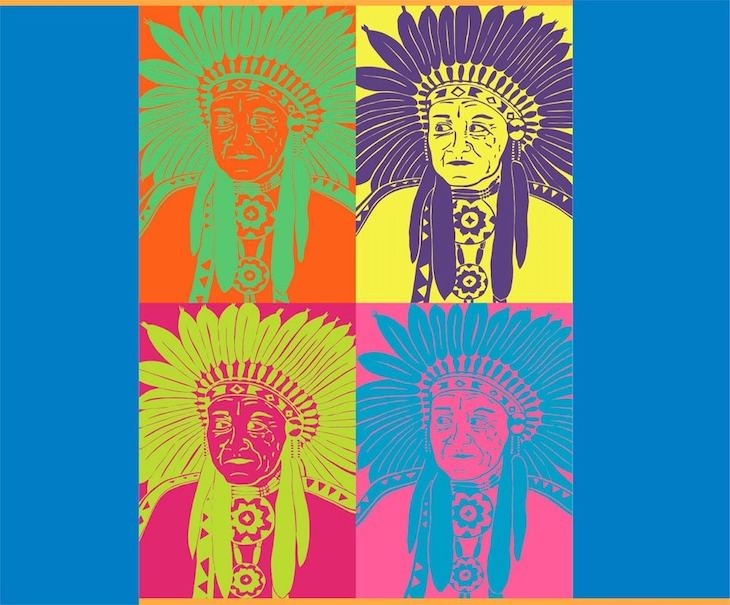
Frontline Solutions, in partnership with Melvin Consulting and First Nations Development Institute, is launching a new report entitled Searching for Inclusion in Philanthropy, some key findings of which are described in the article below.
Study after study confirms that philanthropy remains predominantly white. The Council on Foundations (COF) reports that over 75 percent of US foundation staff are white. According to the D5 Coalition, 92 percent of foundation CEOs, 84 percent of executive staff, and 87 percent of foundation boards are white. A key aspect of perpetuating white dominance in the sector starts at the beginning—the hiring process.
Researchers at First Nations Development Institute, Frontline Solutions, and Melvin Consulting examined hiring practices by interviewing and engaging with search firm representatives who play a key role in filling top leadership positions in private foundations. The full report can be found here.
In our report, we document the lack of Native American representation within private US foundations. Today, fewer than 35 Native people control giving portfolios or serve in key leadership roles at private foundations—nationwide. According to the COF report, as of 2015, “Individuals with American Indian or Alaskan Native heritage constituted .09 percent of administrative positions, .06 percent of executive positions, and .30 percent of professional positions.” The report adds that, “these proportions did not change appreciably between 2011 and 2015.”
The results are obvious. Without Native representation in foundations, Native communities continue to be invisible, excluded, and minimized by the giving practices and overall social agendas of foundations.
As communities across the US have pushed philanthropic institutions to be more diverse, equitable, and inclusive in all aspects of their operations—including hiring practices, board recruitment, and giving—these institutions have resisted. Consequently, meaningful measures of becoming more diverse, equitable or inclusive have been elusive. Folk who are Black, indigenous, and people of color (BIPOC) continue to be invisible within the hiring and board compositions of US foundations. Research has continually shown that foundation board and staff composition typically comes from insular and elitist (mostly coastal) networks.
The exclusion of BIPOC individuals from boards and staff causes foundations to miss out on their genius and contributions. But their exclusion also has a direct impact on philanthropic support, as existing (and typically white) networks often lack meaningful relationships with communities that have been affected by structural and systemic colonialism, racism, and discrimination. Thus, these communities remain invisible, excluded, and minimized in foundation giving. Recent research that has continued to document the exclusionary and inequitable funding practices for communities of color include the Race to Lead reports and Racial Equity and Philanthropy: Disparities in Funding for Leaders of Color Leave Impact on the Table by Echoing Green and Bridgespan, among others.
The same is certainly true in terms of representation of Native people within philanthropy. The absence of Native staff within US foundations has a direct impact on foundations’ relationships with Native communities (or lack of) and support of (or lack of support for) Native-led community change. Research shows that foundation support of Native-led community change is extremely small and volatile, declines in times of crisis, and takes years to rebound. In fact, less than a quarter of one percent of foundation dollars flow to Native-led organizations. To learn more about the historical and continued underinvestment of Native people and communities, see research by Native Americans in Philanthropy and First Nations Development Institute.
Why Are So Few Native Americans Employed at Private Foundations?
Much of what individuals in philanthropy (as well as the general public) know about Native Americans is based on misinformation, bias, and stereotypes. Consequently, when Native people are excluded from philanthropy, misinformation, stereotypes, and unchecked bias flourish and lead to marginal investment and inauthentic relationships with Native people and communities.
This widespread misinformation and overall lack of familiarity with Native communities often results in disparate treatment in the sector. We spoke with Native leaders who were recently subjected to discriminatory and insulting treatment by a well-known search firm that was hiring for a position within a foundation that was purportedly mission-focused on supporting the rights and opportunities of Indigenous peoples and communities. The search director from this white-led search firm (and not part of the search firms interviewed for the study) conducted interviews with Native candidates and took the opportunity to disparage their credentials, minimize their leadership qualities and experiences, and question the talent of the staff at candidate organizations—all the while claiming a level of self-expertise on Indigenous issues that these Native leaders tackle daily as part of their current positions.
This type of behavior too often remains unchecked as search firms are accountable only to their foundation clients. These firm directors continue to blaze a trail of disrespect with prospective Native candidates as they conduct searches for foundations that claim to be committed to advancing diversity, equity, and inclusion.
This example is not intended to portray all search firms in the same negative light, as some Native leaders we interviewed have had very good interactions with other search directors and firms. Moreover, our research documents that some firms do take seriously their role in growing the diverse pool of candidates for foundation hires. But this recent experience does raise serious questions about hiring practices that deserve further interrogation as we continue to push the sector to be more diverse, equitable, and inclusive.
The Role of Search Firms
Not every search firm is as guilty of blatant discrimination as the example cited above. But the story reminds us of the critical gatekeeper role search firms play in the foundation professional process. Furthermore, individuals do find their way to positions in philanthropy in a variety of ways—not just through search firm processes—but we must acknowledge the important role such firms play in recruitment and hiring for staff and some board placements.
Thus, our research approach focused these firms and the role they play. We had hoped to include a Native-owned search firm in our study. However, we could not identify any firms working in the US with private foundation search placement experience.
All the individuals we interviewed were from firms that had a public-facing statement regarding their commitment to diversity, equity, and inclusion. Almost all the individuals from the firms we spoke with were admittedly on their own learning journey when it comes to diversity, equity, and inclusion. But all individuals were open and willing to share their perceptive and experiences as they relate to search processes, challenges they have encountered, and ways that they can improve their practice and make foundation hiring more diverse and inclusive. We are extremely grateful for their openness and partnership in the process.
Stop Placing Blame on “Pipeline Issues”—Unless You’re Stopping Pipelines
One common trope that we ran into regularly when conducting our surveys was the so-called “pipeline issue.” This trope, of course, does not solely affect Native Americans. Not long ago, Wells Fargo CEO Charles Scharf was reported by Reuters as saying that, “While it might sound like an excuse, the unfortunate reality is that there is a very limited pool of Black talent to recruit from.” This was his attempt to address the inability of the bank to hire more diverse staff.
Scharf’s comments reflect those of a long line of white leaders from different sectors who suggest that communities themselves do not produce the qualified and talented individuals needed to fill leadership roles in key leadership roles within the US workforce. The same is true in philanthropy.
Many of the search firms acknowledge that “pipeline” issues are commonly cited as a barrier to hiring. But often, arguing that pipeline issues affect hiring in fact places blame on already marginalized communities rather than investigating the ways in which hiring practices and processes work to exclude diverse candidates. And, for Native communities, blaming “pipelines” for the lack of hiring qualified Native candidates conjures up even more trauma, as Native communities have actual harmful physical pipelines that run through their communities and have to fight regularly to try to stop these pipelines from being built or to shut them down.
Representation, Data, Storytelling, and Pro-Tips
Representation matters when foundations and search firms engage in hiring. Search firm professionals acknowledge that having people of color on staff within search firms and also on foundation internal hiring committees matters. Having people of color authentically involved (and even leading searches) makes searches for diverse candidates more successful and leads to deeper connections and networks within diverse communities and better strategies for facilitating and maintaining trust in these communities. When trust is developed with talent pools, search firms are not seen as simply pillaging the networks and contacts of perspective candidates, and relationships move from transactional to transformational.
Search firm professionals also acknowledge a need to be able to provide quality data on the racial and ethnic demographics of past search placements. Still, they note that some search firms also count white women as part of their “diversity hire” numbers. To improve accuracy in reporting, true racial and ethnic demographics must be captured. Further, data must be disaggregated to fully convey how search firms recruit and place BIPOC candidates.
Our conversations with search leaders also reveal that firms with an organization-wide learning agenda are more likely to distribute their learnings broadly across firms rather than forcing single individuals or departments to shoulder the burden. Greater success in finding and placing diverse candidates is facilitated when firms include the following factors:
- Develop learning agendas to identify internal biases as a firm and in the client’s search approach.
- Challenge the perceptions and misperceptions of Native communities, specifically around relocation challenges, access to high-net-worth donor networks, and how tribal leadership experience is conveyed.
- Increase the use of storytelling to interpret the working histories and expertise of candidates to paint a more accurate picture of the candidate rather than merely focusing on outputs.
- Educate clients on onboarding practices that can support non-white candidates as they enter predominantly white organizations.
On the candidate side, interacting with a search firm is a mystifying and in many ways secretive process. Some search firms acknowledged this and also saw it as part of their obligation to provide helpful coaching for candidates throughout the search process—from recruitment to negotiations.
Beyond examining practices that are barriers to Native inclusion within hiring processes, Searching for Inclusion in Philanthropy also offers tips and resources for perspective candidates, foundations, hiring committees, and search firms. For example, our tips for foundations include the following:
- Learn to see and find value in non-traditional backgrounds, cultures, and work experiences.
- Stress the connection to mission alignment.
- Track goals, measure progress, and be transparent.
- Acknowledge and own the history of your foundation. Have honest conversations about the difficult relationship between philanthropy and Native communities.
- Develop an organizational commitment to understanding and practicing diversity. If you are going to bring on your first Native American staff member, never make it a one-and-done hire.
- Once Native people are hired, be sure to avoid tokenism and placing undue burdens on them. Do not make a Native staff member the poster child for all things Indian within your foundation.
There is, for sure, a long way to go before the above practices become the “common sense” of the philanthropic field. More encouragingly, we did find search firms that succeeded in placing Native Americans in foundation program officer and leadership positions. Those that did so succeeded because they integrated into their operations some key practices, including spending more time with candidates to “listen differently” and finding ways to help candidates communicate their achievements and skills. This latter item often required helping Native candidates translate their non-traditional or non-philanthropic working experiences into items that could be incorporated in résumés and therefore made visible to foundation hiring committees.
The road ahead may yet be long, but one thing is for certain, there is no lack of available talent or qualified Native candidates, only a gap in the way qualified candidates are recruited and presented throughout the process. This report highlights the issue of hiring and offers tips to improve the hiring process so that we can see more talented and qualified Native people working in philanthropy.
XV WORLD FORESTRY CONGRESS (WFC 2021)

Building a Green, Healthy and Resilient Future with Forests.
24–28 May 2021, Seoul, Republic of Korea
WFC 2021
The XV World Forestry Congress will be hosted by the Government of the Republic of Korea from 24 to 28 May 2021 and held at the COEX Convention and Exhibition Center in Seoul. The Congress will bring together global forest stakeholders to review and analyze key challenges facing the sector and ways to address these. Participation is usually diverse, with representation from all regions and sectors; including the public and private sector, NGOs, CSOs, scientific or professional bodies, and forestry societies, as well as those who simply care about forests and the environment.
The WFC 2021 will provide a unique opportunity for the global forestry community to consider the state and future of world forestry, particularly in the context of the recovery from the COVID-19 pandemic, while striving to achieve the Sustainable Development Goals. The Congress will focus on defining the role of forests in the global developmental agenda (2030 Agenda) and other major agreements (Global Forest Goals, Paris Agreement, post-2020 global biodiversity framework) and identify key measures that must be put in place as the forest sector adjusts to the new reality and aims to help ‘build back better’. Forests must be an integral part of discussions and decisions to be made on sustainable development, because this will determine the health, wellbeing and stability of the planet and the people.
How to Participate
The Congress will bring together diverse participants from around the globe, with representation from all regions and sectors including the public and private sector, NGOs, CSOs, scientific or professional bodies, and forestry societies, as well as those who simply care about forests and the environment.
All Congress participants must be registered. Registration allows participation in all Congress sessions including the subtheme dialogues and side and other networking events. Participants may also request an exhibition booth to display their products and publications.
There will be a number of interactive events to participate in: side events, presenting a technical paper at a Speakers’ Corner, engaging in networking events, and a variety of other formats.
The XV World Forestry Congress will support the full participation and contribution of youth, and the programme will ensure youth contributions that will stem from debates among peers as well as inter-generational discussions on the most pressing issues facing forests and forestry.
Scientists warn of the social and environmental risks tied to the energy transition
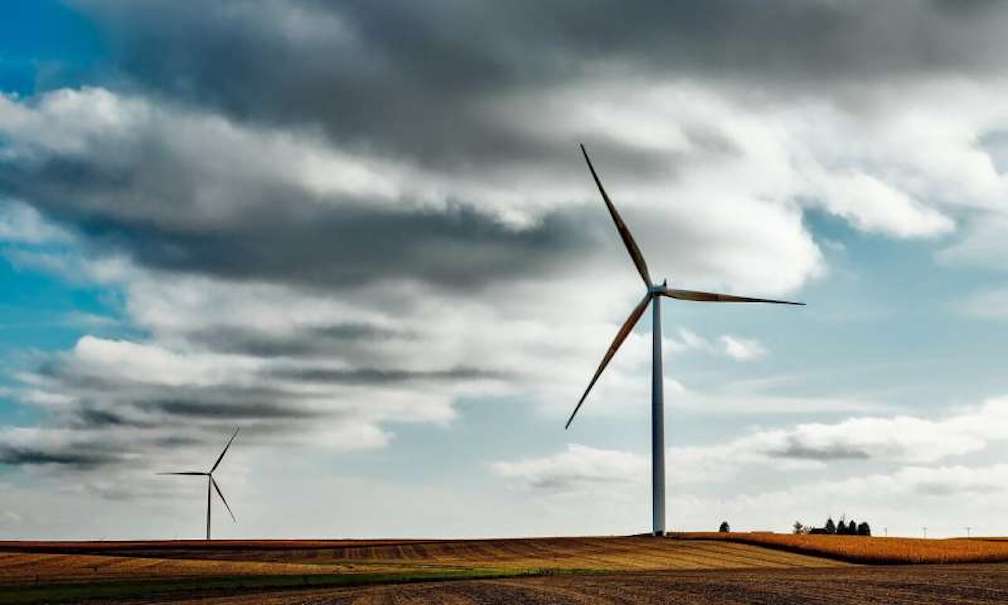
To meet the most ambitious 1.5º C climate goal requires a rapid phase-out of fossil fuels and mass use of renewables. However, new international research by the Institute of Environmental Science and Technology of the Universitat Autònoma de Barcelona (ICTA-UAB) warns that green energy projects can be as socially and environmentally conflictive as fossil fuel projects. While renewable energies are often portrayed as being environmentally sustainable, this new study cautions about the risks associated with the green energy transition, arguing for an integrated approach that redesigns energy systems in favor of social equity and environmental sustainability. The research, which analyzes protests over 649 energy projects, has been recently published in the journal Environmental Research Letters.
The study, authored by an international group of researchers with a large presence of the ICTA-UAB and led by Dr. Leah Temper, from McGill University, draws on data from the Global Atlas of Environmental Justice (EJAtlas), an online database by ICTA-UAB that systematizes over 3000 ecological conflicts. The research examines what energy projects are triggering citizen mobilizations, the concerns being expressed as well as how different groups are impacted, and the success of these movements in stopping and modifying projects.
The study finds that conflicts over energy projects disproportionately impact rural and indigenous communities and that violence and repression against protesters was rife, with assassination of activists occurring in 65 cases, or 1 out of 10 cases studied. However, the study also points to the effectiveness of social protest in stopping and modifying energy projects, finding that over a quarter of projects facing social resistance turn out to be either canceled, suspended, or delayed. Furthermore, it highlights how communities engage in collective action as a means of shaping energy futures and make claims for localization, democratic participation, shorter energy chains, anti-racism, climate-justice-focused governance, and Indigenous leadership.
According to Dr. Temper, “the study shows that the switch from fossil fuels to green energy is not inherently socially and environmentally benign and demonstrates how communities are standing up to demand a say in energy systems that works for them. These results call for action to ensure that the costs of decarbonization of our energy system do not fall on the most vulnerable members of our society.” The study urges climate and energy policymakers to pay closer attention to the demands of collective movements to meaningfully address climate change and to move towards a truly just transition.
The study finds that amongst low-carbon energy projects, hydropower is the most socially and environmentally damag-ing, leading to mass displacement and high rates of violence. Out of the 160 cases of hydropower plants from 43 coun-tries studied, almost 85% of the cases are either high or medium intensity. Indigenous peoples are particularly at risk and are involved in 6 out of 10 cases. Co-author Dr. Daniela Del Bene, from ICTA-UAB, urges caution around large-scale renewables. “The case of hydropower dams shows that even less carbon-emitting technologies can cause severe im-pacts and lead to intense conflicts, including violence and assassinations of opponents. The energy transition is not only a matter of what technology or energy source to use but also of who controls and decides upon our energy systems“, she says.
On the other hand, wind, solar, and geothermal renewable energy projects, were the least conflictive and involved lower levels of repression than other projects.
According to co-author Sofia Avila, “conflicts around mega wind and solar power infrastructures are not about “blocking” climate solutions but rather about “opening” political spaces to build equitable approaches towards a low-carbon future. For example, in Mexico, long-lasting claims of injustice around an ambitious Wind Power Corridor in Oaxaca has spearheaded citizen debates around a just transition, while different proposals for cooperative and decentralized energy production schemes are emerging in the country.”
According to Prof. Nicolas Kosoy, from McGill University, “participation and inclusiveness are key to resolving our socio-environmental crises. Both green and brown energy projects can lead to ecological devastation and social exclusion if local communities and ecosystems rights continue to be trampled upon.”
The study argues that place-based mobilizations can point the way towards responding to the climate crisis while tackling underlying societal problems such as racism, gender inequality, and colonialism. According to Dr. Temper, addressing the climate crisis calls for more than a blind switch to renewables. Demand-side reduction is necessary but this needs to work in tandem with supply side approaches such as moratoria, and leaving fossil fuels in the ground are necessary. “Equity concerns need to be foremost in deciding on unminable and unburnable sites. Instead of creating new fossil fuel and green sacrifices zones, there is a need to engage these communities in redesigning just energy futures”, she says.
Eagles Attack And Destroy Nine Mining Giant’s Drones
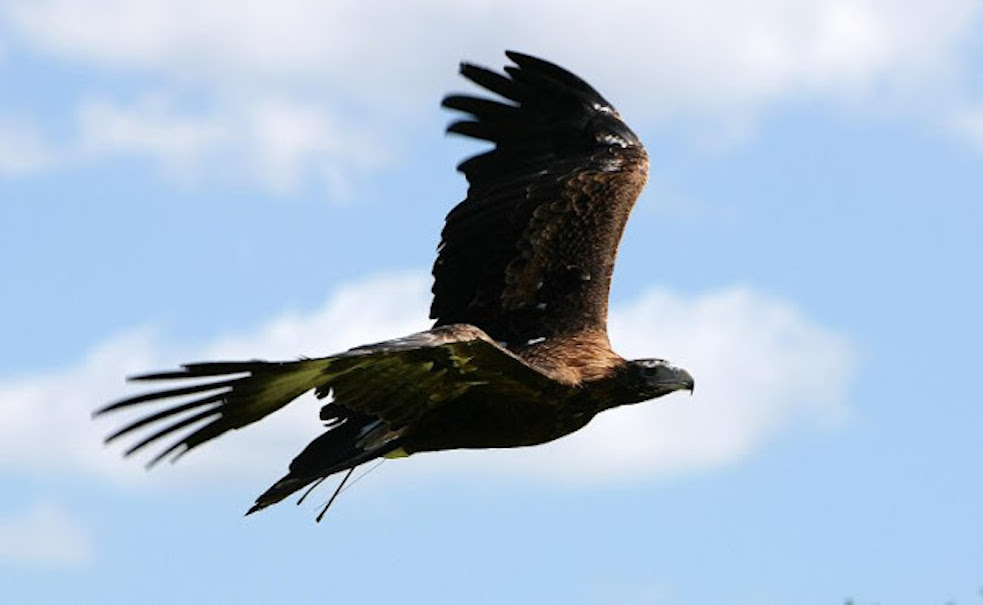
Wedge-tailed eagles do battle with mining giant’s drones, knocking nine out of sky. Eagles and drones have been battling for the skies above Western Australia.
Currently it’s the birds of prey that are winning after taking out nine of the unmanned aerial vehicles (UAV).
The Trimble UX5 drones belong to mining company Gold Fields, which has been using them to survey St Ives since 2014.
The wedge-tailed eagle has a two metre wingspan and is a protected species.
Ten UAVs have been lost since South Africa’s Gold Fields, the world’s seventh-biggest gold producer, began operating the Trimble UX5 systems at its St Ives operations near Kambalda.
One crashed as a result of human error, while nine have been taken down by wedge-tailed eagles, which are known to have wingspans more than twice that of the 1-metre-wide UAVs.
The UAVs are constructed from foam and carbon fibre, and fly at an altitude of about 125 metres, reaching speeds of up to 92km/h.


Window on Eurasia: Ussuri Activist, Now in US Exile, Recalls First Real Elections in His Home Region in 1987
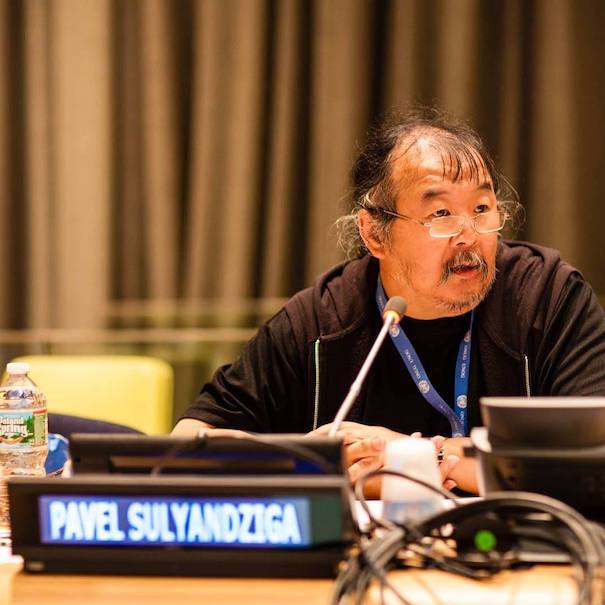
Paul Goble
Staunton, November 8 — It is easy to forget if one lives in a country where voting in multiple candidate elections have taken place for decades or even centuries how new that idea is in the Russian Federation where the first genuinely competitive voting took place less than 35 years ago in 1987.
That makes the latest recollections of Pavel Sulyandziga, an ethnic activist from Russia’s Far East and North who now lives in exile in the United States, about those first competitive elections in living memory there especially valuable as an indication of just how steep a learning curve people there must go through (indigenous-russia.com/archives/8853).
Sulandziga, an Udygey, became a mathematics teacher there after graduating from a teacher training school and in 1985, he recalls, he was named “the best young teacher of Primorsky Kray,” a distinction that gave him a chance to visit Moscow for the first time to take part in the First Congress of the Best Young Teachers of the Soviet Union.”
Because of his work with the pupils, his authority rose and many of his charges began to come to him with various issues concerning not only education and culture but the injustices experienced by Udygeys who were seeing their primordial lands taken over and exploited by outsiders.
Convinced that if there was a problem, it should be addressed, he turned to the local party leadership which basically told him to stop raising such issues because the party knows best. Had it told him that it would take up these issues, he would have been delighted, but that didn’t happen and set the stage for what has taken place since.
As a communist and a deputy in the village soviet, Sulandziga together with the secretary of the local Komsomol organization, an outsider who was assigned his first job there after graduation, organized a Komsomol conference and nominated their own candidates for the rural soviet to run against the communist slate.
The party demanded they retract their list and the KGB then gave his partner 24 hours to leave the region. But because there was no place they could send Sulandziga, they began to put about stories he was an alcoholic, abused his students and cursed their parents. The powers tried to expel him from the CPSU but couldn’t easily because he had been named best young teacher.
In the end, he was given a strict warning which was entered in his party card and would have precluded any further advancement had the communist system continued. But the elections happened, he and his slate won the first competitive elections, and four years later, the Soviet Union was no more.
Navajo Teen Harnesses Solar Energy, Wins An Award
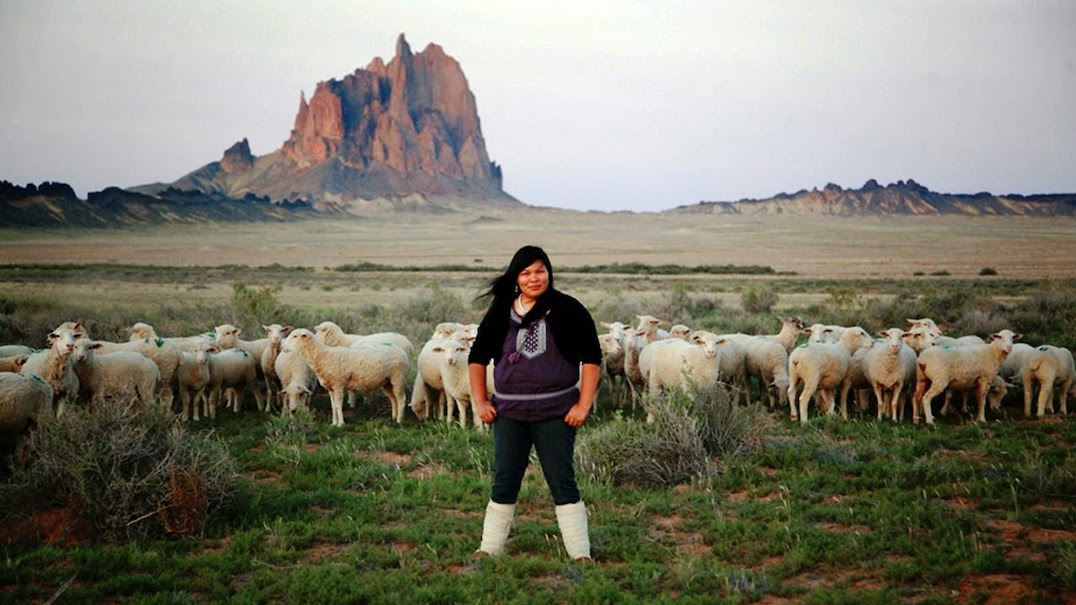
New Mexico teen Raquel Redshirt uses everyday materials and the sun to build solar ovens, fulfilling a Navajo community need and winning an award at the Intel ISEF competition.
Growing up on New Mexico’s Navajo Nation, Raquel Redshirt was well aware of the needs of her community. Many of her impoverished neighbors lacked basics such as electricity, as well as stoves and ovens to cook food.
Though resources in the high desert are limited, Raquel realized one was inexhaustible: the sun. “That’s where I got the idea of building a solar oven,” the teen says.
She researched solar ovens and found that most incorporate mirrors or other expensive materials. Raquel wanted to create a design that anyone could easily afford and replicate, using readily available materials.
She built and tested ovens made of old tires, cardboard, aluminum foil, tape, and insulating materials, including shredded paper and plain old dirt.